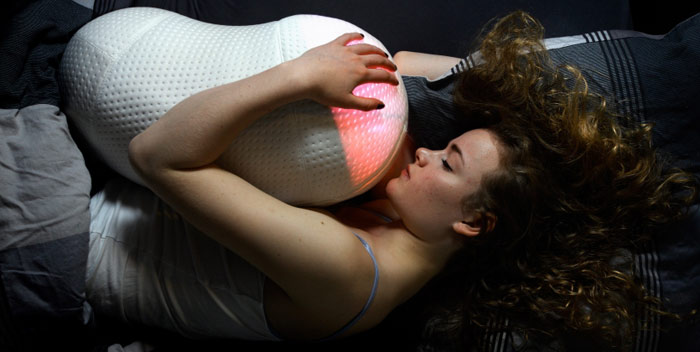 All women grow up with the thought that life is over with the end of the reproductive age. But this assumption is completely wrong. On the contrary, a menopause is an absolute freedom. After this point, a woman is no longer a slave of hormones – she begins to control them, and they have no power over her. This is the idea which has recently been shared by Monica Bellucci. A menopause is always associated with lots of myths and fears, but what awaits a woman after a menopause?
All women grow up with the thought that life is over with the end of the reproductive age. But this assumption is completely wrong. On the contrary, a menopause is an absolute freedom. After this point, a woman is no longer a slave of hormones – she begins to control them, and they have no power over her. This is the idea which has recently been shared by Monica Bellucci. A menopause is always associated with lots of myths and fears, but what awaits a woman after a menopause?
1. Is menopause forever?
A menopause is the time of the last menstruation. Climax is a period that begins 12 months after a menopause and lasts until the end of life. Is it possible to start the menstrual cycle again after a menopause? Of course. Modern doctors have a lot of diagnostic methods that determine the cause of stopping menstruation, as well as the medical methods that will help to start it again. But we must understand that this is not really possible in all cases.
2. Sexual desire after menopause decreases
If a woman does not take any steps to alleviate the symptoms of a menopause and maintain normal hormonal levels, this is possible. In the first half of the climacteric period, this is associated with unpleasant symptoms that bother a woman and with changes in her psycho-emotional state. Changes are also taking place in the intimate area: the vaginal muscles tone changes, there appears disturbing dryness in the vagina, and insufficient production of natural lubricants during sex. Again, the above-mentioned symptoms can and should be removed after consulting with a gynecologist. This will help avoid problems in the sexual life during a menopause.
3. The later menstruation began, the later menopause begins
This is not entirely true. The time of a menopause depends on a variety of reasons. One of them is the ovarian reserve. In some women, it is measured in hundreds of thousands, in others in dozens. Of course, not all of them will reach the stage of ovulation and will develop into eggs. This happens only to 0.1-1% of the follicles, the remaining 99% will die due to natural death – apoptosis. At the same time, the women who have less ovarian reserve have to face the manifestations of a menopause earlier.
The start of a menopause is affected by lifestyle: bad habits, eating habits, and concomitant diseases. The approximate age of a menopause in a woman can be calculated based on that of a mother and grandmother. It is not by chance that the doctor tries to collect a family history in order to predict the possible risks of a woman related to health. Therefore, we can say: if the mother experienced her menopause early, the same thing will happen to the daughter. This, of course, is not an axiom. However, the likelihood of such a scenario is very high, about 50-75%.
4. Late delivery postpones the start of menopause
Alas, it does not. In fact, the opinion that childbirth rejuvenates is no more than a myth. Pregnancy is quite a serious test for the woman’s body. With time, our body does not become stronger and healthier, quite the opposite. Late delivery will take away those remnants of health that the woman has. Health will break where it is thin and weak, and for each particular woman, it is individual.
5. After menopause, women get fat
If a woman does not adjust her diet, has a sedentary lifestyle, does not seek to maintain the hormonal balance, it is really possible to gain weight. The level of estrogens and androgens decreases (but not so sharply).
Such an imbalance can lead to metabolic disorders, as a result of which carbohydrate and fat metabolism changes. Moreover, a woman can gain weight rapidly – up to 8-10 kg over a short period of time. It will be very difficult to get rid of it in the future. Moreover, redistribution of adipose tissue occurs. Fat is more often deposited on the anterior abdominal wall of the “apple” type of figure.
6. After a menopause, more wrinkles appear on the face, because the body stops producing collagen
Unfortunately, this is true. Adequate estrogens synthesis is important for stimulating the renewal of skin fibers – collagen and elastin. As soon as the production decreases, the woman observes an increase in the number of wrinkles on the face and sagging of soft tissues. It is not by chance that cosmetologists consult women of a menopause age together with a gynecologist and an endocrinologist. This is the only way to achieve a good and lasting effect from aesthetic procedures.
7. The most difficult time is the beginning of menopause marked by hot flashes and irritability
In general, if we talk about the symptoms, such as hot flashes, fever, sweating, and disturbance of the psycho-emotional state, they really most clearly manifest themselves at the beginning of a menopause or in the pre-menopause period (it precedes the last menstruation and lasts for 3-4 years). But we must not forget about individual characteristics. In some women, this period lasts 1–2 years, in some women it lasts 5 years, and sometimes, albeit rarely, it takes 10–15 years…
Many women suffering from the unpleasant symptoms do not take any steps to solve the problem, considering that this is a natural process that you just need to go through. Of course, it is natural, but you can survive it with greater comfort and with less loss to health.
A menopause increases the risk of osteoporosis, atherosclerosis, changes in the intimate area, such as urogenital atrophy. Today, doctors have a real opportunity to help a woman maintain her quality of life, optimal weight and reduce the likelihood of developing diseases associated with changes in hormonal levels.
8. Approximation of a menopause can be determined by certain precursors that make themselves known 2-3 years before it begins.
The climacteric period is divided into several stages, the first of which is the pre-menopause – the years preceding the last menstruation. Its duration is 3-4 years. During the pre-menopausal phase, women can really experience quite vivid manifestations, which may indicate the onset of a menopause. These include violations of the rhythm of menstruation and sleep, hot flashes, night sweats, emotional instability, and memory impairment.









